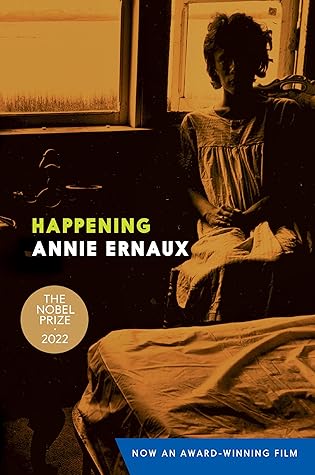More on this book
Community
Kindle Notes & Highlights
So it would appear my life is confined to the period separating the Ogino method from the age of cheap condom dispensers. It’s one way of measuring it, possibly the most reliable one of all.
On the doorstep he beamed at me, “love children are the most beautiful of all.” What a terrible statement. I returned to my accommodation on foot. In my diary I wrote: “I am pregnant. It’s a nightmare.”
What he wanted was to remain at the forefront and to find out how my story would end. It was a bit like seeing the show without having to pay the price. He had warned me that his involvement in a group campaigning in favor of planned pregnancy prevented him from lending me money for an illegal abortion “on moral grounds.” (In my diary: “Had lunch with T along the banks. More problems.”)
As was often the case, you couldn’t tell whether abortion was banned because it was wrong or wrong because it was banned. People judged according to the law, they didn’t judge the law.
In a strange way, my inability to write my thesis was far more alarming than my need to abort. It was the unmistakable sign of my silent downfall. (My diary read: “I can’t write. I can’t work. Is there any way out of this mess?”) I had stopped being “an intellectual.” I don’t know whether this feeling is widespread. It causes indescribable pain.
she asked no questions—she focused on the essentials of the job: the date of my last period, the price, the technique used. This emphasis on practicality was strangely comforting. No feelings, no morals.
(If I had to choose one painting to symbolize that episode in my life, it would be a small table with a formica top pushed up against a wall and an enamel basin with a probe glowing on the surface. Slightly to the right—a hairbrush. I don’t believe there is a single museum in the world whose collections feature a work called The Abortionist’s Studio.)
Today smugglers are vilified and pursued like abortionists were thirty years ago. No one questions the laws and world order that condone their existence. Yet surely, among those who trade in refugees, as among those who once traded in foetuses, there must be some sense of honor.
I walked along the city streets, my body harboring the secret of that night of January 20-21 as something sacred. I couldn’t decide whether I had reached the outer fringes of horror or beauty. I felt proud. A feeling not unlike that experienced by lone sailors, drug addicts or thiefs, who have ventured where others fear to tread. A feeling that may partly have contributed to my writing this book.
I have finished putting into words what I consider to be an extreme human experience, bearing on life and death, time, law, ethics and taboo—an experience that sweeps through the body.


